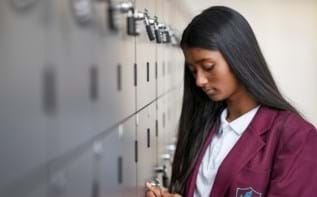Managing stress: school staff and Place2Be clinicians share their tips
Managing stress: school staff and Place2Be clinicians share their tips
School staff and Place2Be clinicians share the different ways they manage stress and prioritise their own wellbeing.
A school can be an incredibly stressful place. School staff are often juggling multiple requests and demands on their time. While supporting students will always be the priority, it is important to remember you can only fully attend to their needs if you are looking after your own, too.
Below are some tips to help you manage stress and take care of your mental health.
Give yourself some space
At times it can feel as though our job is taking over our lives. It can be difficult not to take work home with us, however work-life balance is so important for our wellbeing.
It’s also important not to get overloaded during the day. Make sure you give yourself time to properly reflect on your priorities and achievements.
Place2Be Trainer Anna recommends this podcast from Brené Brown exploring burnout and the stress cycle, featuring an interview with Drs. Emily and Amelia Nagoski.
FLIP exercise
This activity was shared by a Cover Supervisor and Wellbeing Champion working in a secondary school.
When it feels as though everything is becoming too much and you’re about to flip, try following these simple steps:
- Focus: acknowledge your feelings and allow yourself to feel them for a moment. Remember: it’s ok to experience negative feelings, it helps make us stronger.
- Language: think about what's caused the issue and try and re-phrase it using more positive language. For example, if you’re worried about a deadline, try telling yourself: ‘take your time’, ‘you can do this’, ‘they will understand’.
- Imagine: picture yourself acting out the stressful scenario with a positive outcome. For example, standing in front of a group of students or staff giving a talk, and they are all fully engaged and receptive.
- Pattern: consider whether there is a pattern to your stress and work on changing it. For example, you could ask a colleague to listen to your talk first, so you feel more at ease. Or ask if you can do it in a pair – Ant and Dec style!
Explore nature and get creative
Many of the school staff we spoke to said getting out into nature helped them to destress and relax.
There is growing evidence to suggest that spending time in nature can help relieve stress and anxiety, improve mood, and boost feelings of happiness and wellbeing. Even spending just 20 minutes connecting with nature has been shown to help lower stress hormone levels.
Doing something creative is also a great way to refocus the mind and let go of worries. Place2Be's Art Room team are specialists in using art to support wellbeing and develop resilience. You can find a selection of creative activities on our website designed to help children, young people, and adults nurture their relationships together whilst having fun.
Explore our Art Room activities
Mental health training for school staff, trainee teachers and youth workers
If you’re interested in developing a deeper understanding of mental health, check out our Mental Health Champions – Foundation programme. This free online course can be used as an introduction or as a tool to refresh your existing knowledge and is suitable for people working with children and young people of any age.
We also provide a comprehensive training programme for Senior Mental Health Leads. The course is DfE quality-assured and will support you to develop your whole school approach to mental health and enable you to prioritise staff wellbeing.
News & blogs

Uniting health and schools to improve mental health
Read Place2Be Chief Executive, Catherine Roche's, thoughts on uniting health and schools to improve mental health.
Read more
Back to school: breaking down the barriers to attendance
As the school year starts, Place2Be's Educational Psychologist team share interventions to help improve school attendance.
Read more
10 tips for nurturing the wellbeing of LGBTQ+ young people
Place2Be's Plus+ Group shares their tips and advice on how to create safe environments for LGBTQ+ children and young people.
Read more



